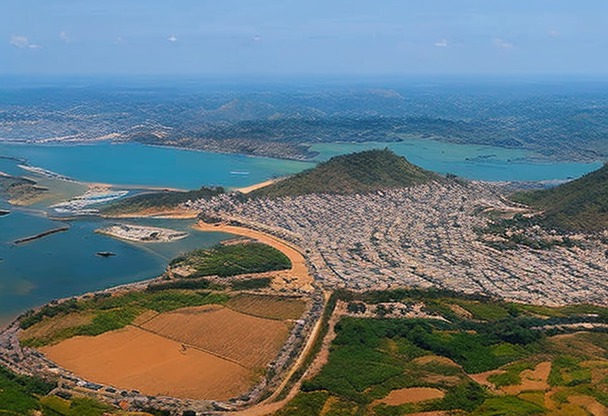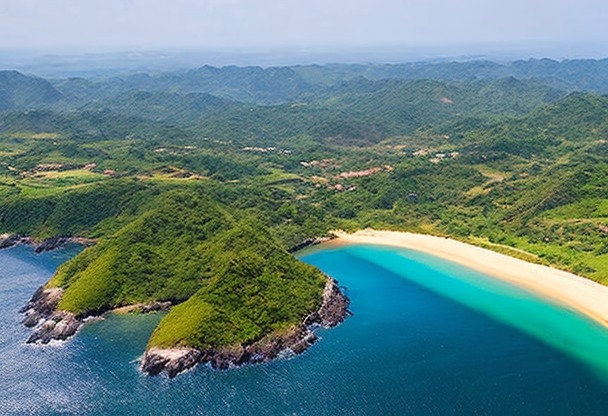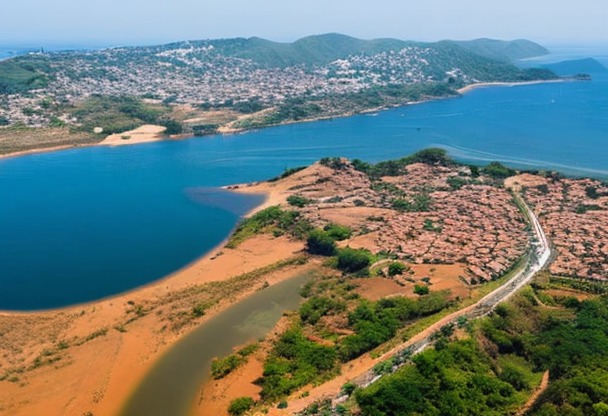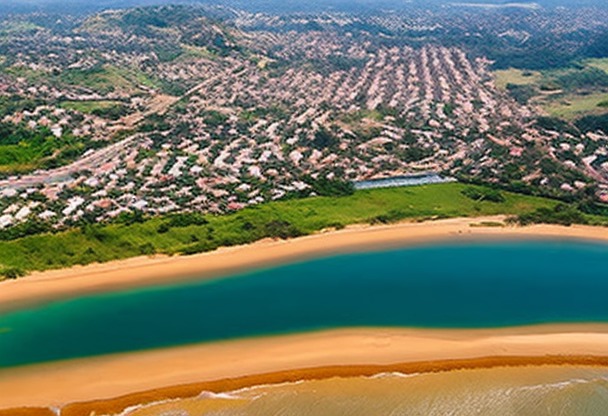Best time to travel to Guinea
Choosing the right period for your trip to Guinea can make all the difference. It's important to consider climatic elements, seasonal events and busy tourist periods to maximize your travel experience.

Location
Climate
Seasons and weather in Guinea
Guinea's climate varies from region to region. There are two main seasons: the dry season and the rainy season.Dry season in Guinea (November to May)
The dry season generally runs from November to May. This is the ideal time to visit Guinea, as temperatures are pleasant and rainfall is low. Days are warm and sunny, while nights can be cool in some areas, particularly at higher altitudes.- Average temperatures: 24°C to 32°C
- Precipitation: low
The rainy season in Guinea (June to October)
The rainy season extends from June to October. Temperatures remain warm, but rainfall is heavier, especially in coastal and mountain areas. Roads can be difficult to navigate due to flooding and landslides. It is therefore advisable to seek advice before planning a trip during this period.- Average temperatures: 22°C to 28°C
- Precipitation: heavy
Major cultural events in Guinea
Guinea is packed with cultural events all year round. Here are some of the most important events not to be missed during your stay in the country:Independence Day (October 2)
This national holiday celebrates Guinea's independence, achieved on October 2, 1958. It's an opportunity for the country's inhabitants to get together and celebrate their history through parades, concerts and traditional events.National Arts and Culture Festival (December)
Organized every two years since 1987, this festival aims to promote various forms of Guinean art and culture. Artists and craftspeople from all over the country come together to present their work and share their know-how. Dance, music, theater, crafts and gastronomy are all on offer at this not-to-be-missed event.Fouta Djallon celebrates (August)
This annual event celebrates Fulani culture, which is in the majority in the Fouta Djallon region. Musical performances, traditional dance competitions and fashion shows are organized to showcase the Peul cultural heritage.Public holidays in Guinea
In addition to cultural events, several public holidays are celebrated in Guinea throughout the year. Here is a non-exhaustive list of these days:- January 1 - New Year's Day
- March / April (date varies) - Easter
- May 1st - Labour Day
- July 21 - Bastille Day
- August 15 - Assumption
- October 2 - Independence Day
- December 25 - Christmas
High and low season in Guinea
There high season in Guinea generally corresponds to the dry season, between November and May. During this period, temperatures are pleasant and rainfall is low, making conditions ideal for tourist activities and travel. Accommodation and flight prices may be slightly higher during this period. Visit low seasonThe rainy season lasts from June to October. Rainfall is heavy, especially in coastal and mountainous regions, which can make travel conditions less pleasant and some roads more difficult to negotiate. However, it is possible to find cheaper accommodation and flights during this period.Insurance

Your credit card does not cover you in all situations, that is whyIt is essential to take out insurance before you leave to avoid any unpleasant surprises. If you need to see a doctor or be hospitalized, in some countries, medical costs are very high and you will then find yourself having to pay several thousand euros.
Our partner Chapka Insurance proposes the contract CAP ASSISTANCE 24/24 with many essential guarantees.


Flights

Your flight has been cancelled or delayed ?
You may be eligible for a compensation of up to €600 ! For this, lawyers are responsible for handling your claim with the airline and are only paid when the reimbursement is effective.
In conclusion, no financial risk for you, only advantages!
Statistics on immigration to Guinea
According toInternational Organization for Migration (IOM)Guinea is home to around 170,000 international migrants every year. These migrants mainly come from neighboring countries such as Mali, Côte d'Ivoire, Senegal and Sierra Leone. As far as Guinean emigrants are concerned, their number amounted to almost 950,000 people in 2020. Their main destinations are West African countries such as Senegal, Côte d'Ivoire and Morocco, as well as European destinations such as France, Spain and Italy.Most popular visas in Guinea
The different types of visa required in Guinea reflect the diversity of reasons why foreigners wish to stay. Here are the main categories of visas requested:- Work visas Visas: These are required for foreigners wishing to work in Guinea. These visas generally require a work contract and authorization from the Ministry of Labor.
- Business visas This type of visa is intended for people coming to Guinea for professional reasons, such as attending conferences, trade fairs or business meetings.
- Study visas Foreign students wishing to study in Guinea must obtain this type of visa. Proof of enrolment in a Guinean educational establishment is generally required to obtain this visa.
- Tourist visas : Intended for foreign tourists, these visas enable you to stay in Guinea for vacations or family visits.
- Family reunification visas This type of visa is intended for family members of Guinean residents who wish to join them. It mainly concerns spouses, minor children and dependent parents.
International tourism figures for Guinea
Guinea is a country of varied landscapes, from the arid regions of Upper Guinea to tropical forests and magnificent beaches. Tourism therefore represents a major asset for the country's economic development.International tourism trends in Guinea
Statistical data on tourism in Guinea show that the number of international tourists has been growing in recent years. In 2018, Guinea welcomed around 116,000 international visitorscompared with around 94,000 in 2014. However, these figures are still low compared to other African countries such as the United States and Japan. Morocco or theEgypt which attract several million visitors every year. The main reasons why tourists visit Guinea are to discover national parks such as the Haut-Niger National Park, to visit historical and cultural sites such as the city of Conakry, and to meet local communities and take part in cultural events.Impact of tourism on the Guinean economy
Guinea's tourism sector accounts for 2% to gross domestic product (GDP) of the country. Although this figure is relatively low, tourism represents an important source of income for the local population, particularly through employment in hotels, restaurants and travel agencies. However, Guinea's tourism sector faces a number of challenges. These include improving tourism infrastructure, promoting the destination on the international market and implementing a sustainable tourism development strategy.Future prospects for tourism in Guinea
To take full advantage of Guinea's tourism potential, it is necessary to implement policies aimed at improving visitor reception and promoting the country as an attractive destination. Against this backdrop, the Guinean government has drawn up a tourism development plan aimed at building the capacity of local players, improving infrastructure and enhancing the country's cultural and natural heritage.

